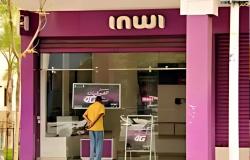Nsia Banque Sénégal is a solid and sustainable bank, with robust fundamentals, which it is up to us to further strengthen. This is what Kouadio Alexandre N’DRI, who has headed the financial establishment for nine months now, confided. In this interview, he commits to intensifying the bank’s presence in the individual and corporate market, with particular attention paid to SMEs/SMIs. For this, he says he relies on a competent and experienced management team, as well as young, well-trained and committed employees, who share and carry this vision.
- Mr. Director, you took the reins of Nsia Banque Senegal nine months ago. How do you plan to consolidate the bank’s activities in a financial environment that has become increasingly competitive?
Competition is intense and will not let up. You have to learn to deal with it. For my part, I consider it a source of additional motivation and innovation. Our economic model will now focus on financing businesses, particularly SMEs/SMIs, with a range of tailor-made financial services, which we have enriched this year with non-financial services, in order to fully play our role as a financial educator.
We are well aware that operating in such a competitive environment, where players compete for innovation, requires that quality of service be our main differentiating factor. This is why we make quality of service the heart of all our actions, as evidenced by our ISO 9001 certification.
Our proximity to customers will undoubtedly constitute a key distinguishing factor from the competition. We are constantly enriching our offering by diversifying our distribution channels, both physical, through our new locations, and digital, with the electronic payment platform backed by Visa which strengthens the performance of our bank cards internationally, as well as Gab and Tpe recently installed. In addition, evolutionary maintenance of our online banking platform is underway, in order to further improve customer satisfaction.
- Nsia Banque Senegal is in a new phase of expansion with innovative approaches to create added value. What is the bank’s growth strategy in the coming years?
Like our group, we are a solid and sustainable bank, with robust fundamentals, which it is up to us to further strengthen.
This will necessarily involve retaining our existing customers and conquering new segments, thanks to a commercial approach that is both aggressive and targeted.
This approach will apply as much to the corporate segment as to the individual and very small business market, with the objective of increasing our net banking income (NBI), improving our market share and strengthening of our positioning.
In this context, the profitability of our financing in the face of increasingly rare and costly resources, the continuous improvement of the customer experience, controlled risk management, and the enhancement of the bank’s brand image will be major priorities.
Obviously, all of this is based on the commitment of our employees, whose skills strengthening and improving living conditions are at the heart of our system.
- Financing the VSE/SME segment remains a major concern in the financial and economic sector. How does Nsia Banque Senegal intend to provide appropriate responses to this nagging problem?
At Nsia Banque Senegal, a subsidiary of the pan-African Nsia Group, recognized for its commitment to promoting SMEs and entrepreneurship, we have implemented several strategic initiatives to respond to this priority. These include financing agreements with international and regional organizations, such as Sfi and Agf, as well as partnerships with support and support structures such as Fongip, Der and Adepme.
In addition, we offer tailor-made credit solutions, adapted to the specific needs of SMEs/SMIs, through dedicated programs (Pp Market deposits, Invoice advances, Draft discounting, etc.).
These actions reflect our commitment to effectively supporting this essential segment of the Senegalese economy.
- The slow pace of processing complaints is often deplored by most customers in the banking sector. What do you say to them in the case of Nsia Banque?
When a transaction fails at a partner bank’s ATM, it is often difficult for us to get a quick return, which increases processing times.
In addition, the internal organization of complaints management circuits can sometimes contribute to these delays, an observation shared by many banks.
At Nsia Banque, we are actively working to optimize this process, in order to improve the responsiveness and satisfaction of our customers, while also seeking to strengthen cooperation with our banking partners to streamline exchanges.
- The banking model is experiencing another turning point with the development of the digitalization of products and services. How is Nsia Banque beginning this digital transition? Compared to your network, what are the comparative advantages of this digitalization?
Digitalization is already an unavoidable reality in our banking environment, driven as it is by growing access to the Internet and the emergence of Fintech. We are fully committed to this transition with structuring projects led by the Group, which aim to modernize our IT infrastructure (IS) to integrate constantly evolving digital services.
At the same time, we are developing our own digital products and services with high added value, while establishing strategic partnerships with Fintechs to offer innovative solutions to our clients. This digitalization allows us not only to strengthen our proximity to our customers, but also to simplify their daily lives, by offering them more accessible, rapid services adapted to their needs.
- Compliance occupies an important place in the bank’s organizational system. How could compliance play a role in strengthening customer protection?
Firstly, compliance ensures fraud prevention by putting in place strict control systems, to identify and block any suspicious activity, thereby ensuring the security of customer funds and transactions.
Second, it ensures that the information provided to customers is transparent and complies with regulations, avoiding any ambiguity or misleading practices. This clarity allows customers to make informed decisions.
Third, with the rise of digital technology, the management of personal data has become a crucial issue. Compliance ensures the security and confidentiality of customer information, ensuring that it is protected against misuse or unauthorized use.
Finally, in the event of a dispute, compliance ensures that customers have transparent and fair recourse mechanisms, in accordance with the laws in force.
Thus, compliance is not limited to a regulatory obligation, but constitutes a real lever to strengthen trust, build customer loyalty and guarantee a secure and ethical environment.
Lejecos Magazine






